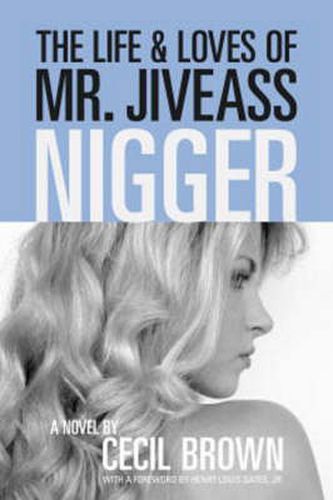Readings Newsletter
Become a Readings Member to make your shopping experience even easier.
Sign in or sign up for free!
You’re not far away from qualifying for FREE standard shipping within Australia
You’ve qualified for FREE standard shipping within Australia
The cart is loading…






Cecil Brown’s The Life and Loves of Mr. Jiveass Nigger first appeared in 1969 to mixed, though often exuberant, reviews. The tale of a young black American poet sleeping his way around 1960s Copenhagen on a satirical quest to find his identity, this book deserves to be brought back into print, although it often walks a thin line between discomfiting hilarity and outright offensiveness.Most critics point to the novel’s central character, George Washington, as the archetypal figure of the prodigal son who wanders far from home (to Europe in this case), wastes himself in riotous living, meets with adversity and misfortune, and resolves to return home where things are infinitely better than he had earlier supposed. Brown infuses new life into a predictable plot with an insistence on the importance of myth and storytelling, and with a narrative voice that bridges Ralph Ellison’s comic elegance of the 1940s and 1950s with the comic bawdiness and perverseness of writers like Ishmael Reed, Clarence Major, and Percival Everett of subsequent decades.
$9.00 standard shipping within Australia
FREE standard shipping within Australia for orders over $100.00
Express & International shipping calculated at checkout
Cecil Brown’s The Life and Loves of Mr. Jiveass Nigger first appeared in 1969 to mixed, though often exuberant, reviews. The tale of a young black American poet sleeping his way around 1960s Copenhagen on a satirical quest to find his identity, this book deserves to be brought back into print, although it often walks a thin line between discomfiting hilarity and outright offensiveness.Most critics point to the novel’s central character, George Washington, as the archetypal figure of the prodigal son who wanders far from home (to Europe in this case), wastes himself in riotous living, meets with adversity and misfortune, and resolves to return home where things are infinitely better than he had earlier supposed. Brown infuses new life into a predictable plot with an insistence on the importance of myth and storytelling, and with a narrative voice that bridges Ralph Ellison’s comic elegance of the 1940s and 1950s with the comic bawdiness and perverseness of writers like Ishmael Reed, Clarence Major, and Percival Everett of subsequent decades.